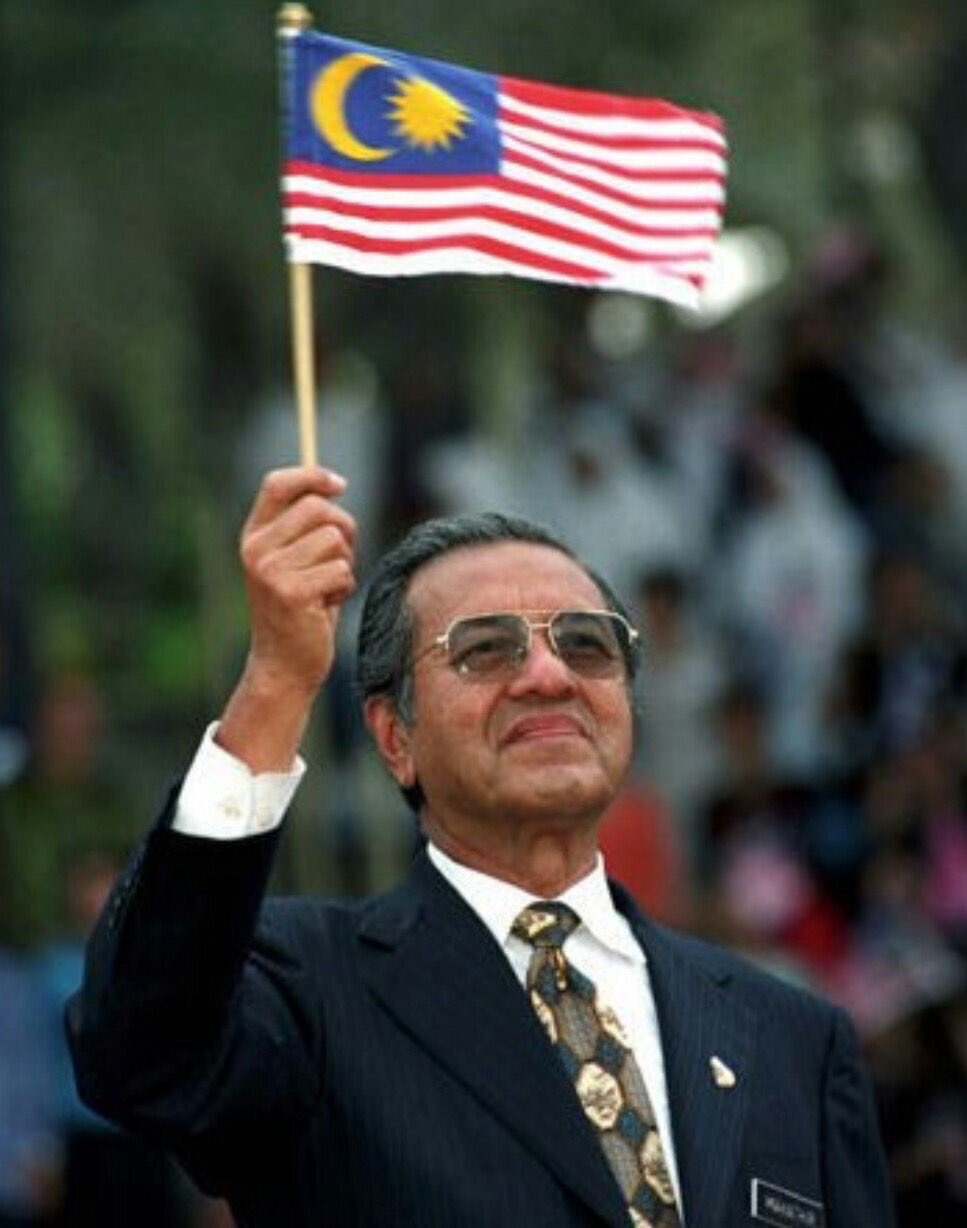How did a nation's most hopeful phrase turn doubtful? Explore the changing perceptions of 'Malaysia Boleh' and how our words can rewrite the national narrative.
{{ vm.tagsGroup }}
30 Aug 2024
4 Min Read
Esther Ng Yi Ke (Contributing Writer), Nellie Chan (Editor)
How did a nation's most hopeful phrase turn doubtful? Explore the changing perceptions of 'Malaysia Boleh' and how our words can rewrite the national narrative.
The air was thick with anticipation as the entire nation held its breath, watching our Malaysian athletes battle for bronze medals. At this particular mamak, a crowd of patrons—young and old—sat with their faces illuminated by the glow of the screen, their eyes reflecting the intense scene. Cheers erupted as our team secured the winning point, raising the roof. 'Malaysia Boleh!' resounded through the space, each voice melding into a powerful chorus, forging a united national spirit.
Oddly enough, a different tune usually plays at this very same mamak. The familiar refrain of 'Malaysia Boleh' hangs heavy in the air. A group of young men lounges at a table, their conversation unfolding: 'Why is it that every time we're on international news, it's about something negative? Politics la, economy la,' one observes. 'Exactly. We have the talent, we have the people, but it feels like we're not making any progress. Malaysia Boleh… lepas tu?' another comments, his voice filled with frustration. 'Boleh la sangat!' the other scoffs, his tone dripping with sarcasm. Isn't it ironic that the once-hopeful phrase has morphed into a doubtful retort?
The phrase 'Malaysia Boleh', which translates to 'Malaysia Can' or 'Malaysia Is Able' in Malay, has taken on notable cultural connotations since its inception. In 1992, the Olympic Council of Malaysia (OCM) sought to boost the morale of our national athletes competing in the 1993 SEA Games (Southeast Asian Games) and to demonstrate national support for them. To this end, Tan Sri Hamzah Abu Samah, then OCM president, approached Datuk Dina Rizal, then sports marketing manager for MILO at Nestlé Malaysia. Their collaboration resulted in the slogan 'Malaysia Boleh!' and its incorporation into MILO's marketing campaign for the 1993 SEA Games. The slogan not only rallied support during the event but also aligned seamlessly with MILO's branding, using patriotic sentiment to strengthen its connection to Malaysian culture and sports.
Photo credits: @MalayaTraders via X
In the mid-1990s, Tun Dr Mahathir Mohamad, then Prime Minister of Malaysia, significantly amplified the impact of the slogan 'Malaysia Boleh' by adopting it for his broader vision for national development, known as Wawasan 2020 (or Vision 2020). He aimed to inspire Malaysians by instilling confidence in their ability to achieve the nation's ambitious goals while reinforcing the government's commitment to supporting these efforts. Tun Dr Mahathir featured 'Malaysia Boleh' prominently in various public campaigns, celebrating national achievements and generating support for major development projects. This strategic adoption transformed the slogan from a sports rallying cry into a powerful symbol of national pride and progress.
However, over time, the phrase 'Malaysia Boleh' lost its positive connotations due to unmet expectations for the country, many of which stemmed from government shortcomings. Issues such as ineffective governance, resource mismanagement, widespread corruption, and a lack of accountability eroded public trust. The failure to address economic growth challenges and reduce inequality further fuelled public disillusionment. As a result, many Malaysians began to regard the government as prioritising its own interests over the welfare of the people. Consequently, what was once an optimistic phrase has become pessimistic, used sarcastically to highlight the disparity between lofty promises and harsh reality.
The phrase 'Malaysia Boleh' might not look like much, but our words carry weight. According to framing theory, the words we use and how we use them (i.e., their connotations) shape our perceptions of the world around us. This is evident in the evolution of 'Malaysia Boleh'. The shift from a positive to a negative connotation has profoundly influenced the public perception of Malaysia, leading to a more disillusioned outlook on the nation's progress. This shift is visible in various narratives we encounter daily, from conversations at the mamak to discussions on online forums like the subreddit r/Bolehland, where users frequently voice their frustrations with the country. Social media platforms, while providing space for freedom of expression, often intensify negative sentiments. This environment can reinforce negative framing, resulting in weakened faith in positive change and reduced engagement with social issues.
Photo credits: r/Bolehland via Reddit
Given this context, consider this question: If how we use our words shapes our perceptions, how can we expect to envision positive change for our country if we don't first change how we use the phrase 'Malaysia Boleh'?
Words hold incredible weight in shaping our perception of reality, and the evolution of 'Malaysia Boleh' illustrates this perfectly. Originally a term of empowerment and hope, 'Malaysia Boleh' has transformed into a sarcastic remark due to shifts in societal and political contexts. This transformation reveals that words aren't static; they evolve with us and reflect our changing beliefs and behaviours.
As Malaysia progresses, our perspective must progress to match. The old ways of thinking—and speaking—symbolised by a phrase now associated with disillusionment and distrust won't move us forward. Instead, we need to cultivate a new one that genuinely embraces Malaysia's diverse past experiences and future aspirations. By doing so, we can rewrite our national narrative, aligning our words with the positive change we seek.
So, in the spirit of progress this Hari Kebangsaan, I say, 'Malaysia Boleh!'


Esther Ng Yi Ke pursued a Bachelor of Biomedical Science (Honours) at Taylor's University before transferring to the University of Bristol. She combines her passion for advocacy with her love for writing to craft impactful narratives that inspire change and promote inclusivity within society.
